Tahawwur Hussain Rana, an important suspect in the 2008 Mumbai terror attacks, is being held at the National Investigation Agency (NIA) headquarters. Because of his presence, Gate No. 2 at the nearby Jawaharlal Nehru Metro Station has been closed for two days in a row.
On Friday morning, the NIA took 64-year-old Rana into custody for 18 days. They will question him thoroughly to learn more about the whole plan behind the attacks that shocked Mumbai and killed 166 people. A spokesperson for the Delhi Metro Rail Corporation (DMRC) said that Gate No. 2 will stay closed until they get more instructions from the police. Although this gate is now shut, all other gates at the station are open, and metro services are running normally.
Rana was brought to NIA headquarters early Friday after a special court agreed to let them keep him for 18 days. The NIA stated that during this time, they will ask him many questions to uncover the complete story behind the attacks. Rana is known to be a close associate of David Coleman Headley, who is considered the mastermind behind the terror attacks.
On November 26, 2008, ten terrorists from Pakistan attacked various places in Mumbai, including luxury hotels, a train station, and a Jewish center. The attacks lasted about 60 hours and caused great tragedy, claiming 166 lives.
Category: News
-
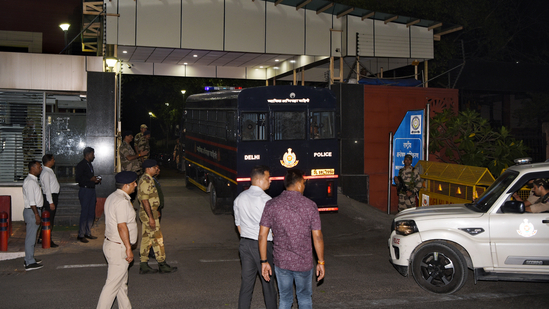
Tahawwur Rana in NIA Custody: Unraveling the Mumbai Attack Conspiracy
-
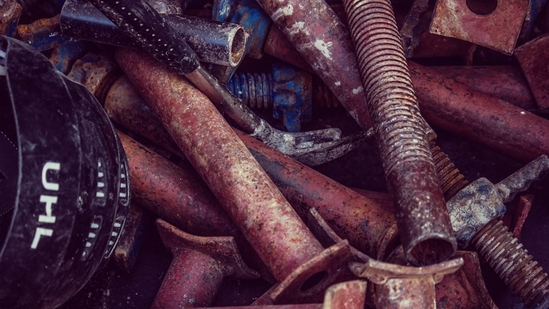
15-Year-Old Student Attacks Teacher with Iron Rod Over Cheating Incident
In a shocking incident, a 15-year-old student attacked a teacher with an iron rod at school. The event happened during an exam when the student was caught copying answers. The teacher noticed him cheating and asked him to move to a different seat. This made the student feel embarrassed and angry. In a sudden burst of rage, he grabbed the iron rod that was used to ring the school bell and hit the teacher. Fortunately, the teacher was hurt but not seriously. Police have started an investigation, and the boy will have to appear in front of a juvenile court.
-
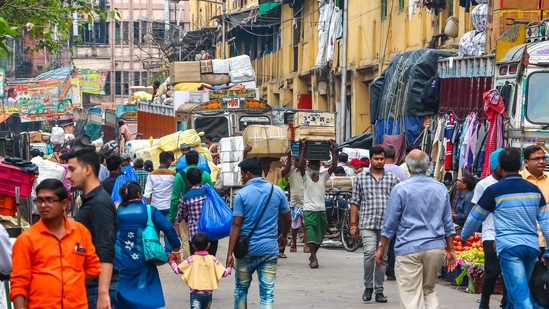
Haryana’s Bold Move Against Female Foeticide: Health Centers Warned
Chandigarh: The health department of Haryana is taking strong action against female foeticide, which is the practice of aborting female fetuses. Officials have sent warnings to senior doctors at 12 community health centers in areas where the number of girls born is very low.
Virender Yadav, who directs the National Health Mission in Haryana, said they are strictly enforcing laws that protect unborn girls. Recently, they have shut down 300 clinics involved in illegal abortions. This week, they warned 23 clinics and filed complaints against 17 sellers of abortion pills online.
In Hisar, the PNDT officer has been suspended for not doing their job correctly. The doctors in charge of the 12 health centers, including places like Rewari and Faridabad, will face serious penalties if they don’t explain why they failed to improve the sex ratio in their areas.
The government is changing the officers in charge of five districts known for having the lowest number of girls. In Hisar, a case against a person selling illegal abortion services is being prepared.
This crackdown comes as Haryana’s sex ratio at birth dropped from 916 girls for every 1,000 boys in 2023 to 910 in 2024. Yadav stated that health officials need to regularly check clinics that perform abortions on women who already have two girls. If clinics are found guilty of illegal practices, they will be shut down.
The government is also asking community health workers to collect data on births in urban areas, which will help monitor the situation. They are spreading awareness about the importance of saving and educating girls throughout various government departments.
This article was created using an automated news agency feed without any changes to the text.
-
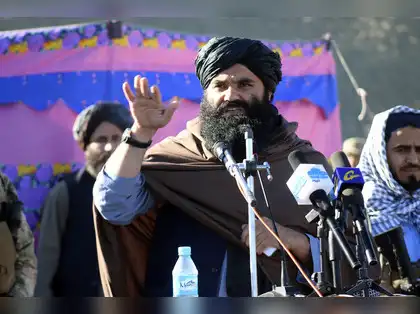
Taliban Executes Four Men Publicly in Afghanistan: Shocking News
On Friday, four men were publicly executed in Afghanistan. This was the highest number of executions in a single day since the Taliban returned to power. With these four executions, a total of ten people have been publicly executed since the Taliban took control in 2021, according to a report by AFP.
During their previous rule from 1996 to 2001, the Taliban often executed people in public, especially in sports stadiums. In one place called Qala-i-Naw, two men were shot multiple times by family members of the victims in front of a crowd. A 48-year-old man named Mohammad Iqbal Rahimyar who watched the execution said the convicted men were made to sit and were shot by the victims’ relatives.
The Supreme Court stated that these men were punished for shooting others, and their cases were carefully reviewed before the actions were taken. The families of the victims chose not to forgive the convicted men, which is why the punishment was carried out.
A 35-year-old spectator named Zabihullah said that the punishment must be implemented if the family didn’t offer forgiveness, calling it God’s order. The Taliban encouraged people to come and watch the event by sending out official invitations.
The third man was executed in the city of Zaranj in Nimroz province and the fourth in Farah city. A witness named Javid expressed approval of the Taliban’s actions, saying it showed power and discipline.
The last public execution before this took place in November 2024 when a man was shot by a victim’s family member in front of thousands, including Taliban officials. The Taliban has been using corporal punishment, like flogging, for crimes such as theft and drinking alcohol.
All orders for executions are made by the Taliban’s Supreme Leader, Hibatullah Akhundzada, who resides in Kandahar. He has told judges to enforce strict Islamic law, which includes the death penalty for murder. The Taliban believes in strong law and order, stemming from the chaos of Afghanistan’s past civil wars.
Their past rule includes infamous incidents, such as the 1999 public execution of a woman accused of killing her husband. Groups like the United Nations and Amnesty International have condemned the Taliban’s use of severe punishments. Amnesty’s reports indicate that Afghanistan is among countries where executions happen without fair trials.
In 2024, there were 1,518 recorded executions worldwide, not counting countless others believed to take place in China, the world’s leading executioner.
-
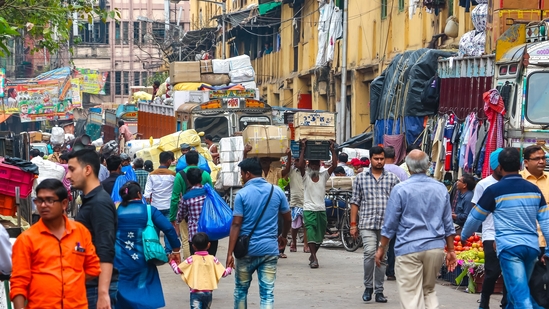
Delhi Police Breaks International Drug Cartel Targeting Students
The Delhi Police have caught a big drug gang that was trying to use students to sell drugs. They arrested two people from Africa, Humphrey Muwong from Uganda and Chukwu Ebuka Umeh from Nigeria. The police found 700 grams of heroin worth over ₹1 crore with them.
These two worked for a man named Dagri Jean Marc, who is also from Nigeria and lives in Africa. He had recruited African students to come to India for schooling, but instead, he used them to deal drugs. Marc used the students’ visas to hide his illegal activities and had set up a strong drug network in India, especially in Tilak Nagar.
On April 3, after watching the suspects for 20 hours at Krishna Park Extension in New Mahavir Nagar, police caught Muwong and Umeh. It was found that they were taking orders from Marc. Muwong, who is a mechanical engineer, had been arrested before in 2023 for similar crimes but was out on bail. Both have been living in India since 2019.
The police have filed a case against them under the Narcotic Drugs and Psychotropic Substances Act. They are now working to find other members of this drug gang and shut down their entire operation.
-
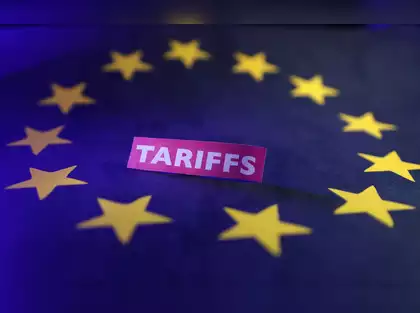
European Stocks Bounce Back Amid Trade Tensions and Tariff Changes
European stocks went up on Friday after a week full of ups and downs. This week was mixed because the U.S. changed tariffs (taxes on imports) unexpectedly, causing worries about a trade war hurting the economy. The big European stock index, the STOXX 600, rose by 0.5% today after falling to its lowest point in a year and a half earlier this week. U.S. President Donald Trump first set new tariffs and then announced he would pause some of them, which caused a lot of stress in the stock market, leading to huge losses. This week marks the third week in a row of stocks going down.
Stock indexes in Germany, Spain, France, and the UK rose between 0.3% and 0.7% following a large gain the previous day. Because of Trump’s tariff pause, the European Union decided to hold off on its own tariffs on American goods. On Friday, finance ministers from the EU will discuss how to use this pause to either reach an agreement with the U.S. or prepare for the new tariffs.
Meanwhile, the trade fight continued between the U.S. and China, with both sides increasing tariffs. In company news, Zurich Insurance’s stock fell by 5.4% before its annual meeting, and Stellantis’s shares dropped by 2.2% after announcing that its first-quarter shipments were down by 9% from last year.
-
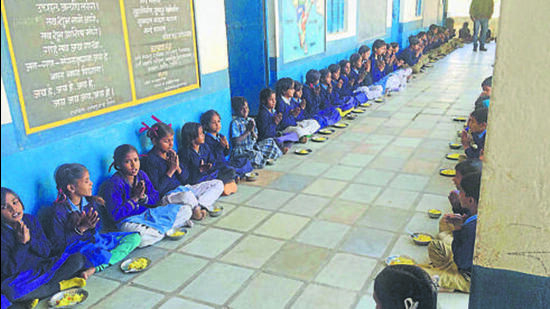
Government Increases Midday Meal Funding for School Children
NEW DELHI: The Indian government has announced an increase in the funds for midday meals for school children starting May 1. For students in kindergarten and primary schools (classes 1 to 5), the funding per student per day will rise from ₹6.19 to ₹6.78. For students in upper primary schools (classes 6 to 8), it will go up from ₹9.29 to ₹10.17.
This change is part of the Pradhan Mantri Poshan Shakti Nirman (PM POSHAN) scheme, which provides one hot meal every school day for about 112 million students in government and aided schools across the country. The government decided on this increase based on inflation, and it expects to spend an additional ₹954 crore in the financial year 2025-26.
Under the scheme, schools get funds to buy ingredients like rice, vegetables, oil, and spices, plus the fuel needed to cook the meals. The total cost of each meal comes to approximately ₹12.13 for primary students and ₹17.62 for upper primary students. This is the second time the meal funding has been increased in just six months.
In November, the government had previously raised the amount from ₹5.45 to ₹6.19 for younger students and from ₹8.17 to ₹9.29 for older students. However, economist Jean Dreze argues that the government still isn’t providing enough money for the scheme, making it hard for states to give students nutritious meals.
The government originally allocated ₹12,467.39 crore for the PM POSHAN scheme but later cut it down to ₹10,000 crore. By February 18, 2025, only ₹5,421.97 crore had been spent. For the next financial year, ₹12,500 crore has been set aside for the scheme. A government official stated that the funding adjustments are based on the consumer price index, which tracks price changes across different areas in the country.
-
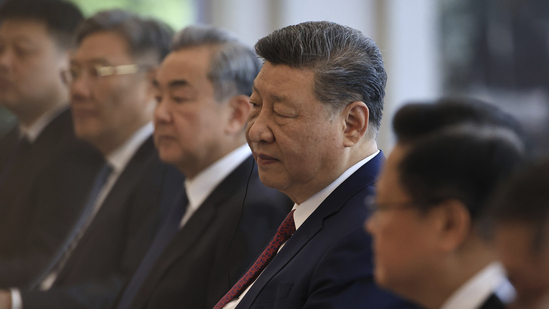
Xi Jinping Urges EU to Join China Against U.S. Trade Bullying
Chinese President Xi Jinping has called on the European Union to work with China against what he calls “unilateral bullying.” This statement was reported by state media Xinhua.
Xi made these remarks while meeting with Spanish Prime Minister Pedro Sanchez in Beijing. He explained that China and Europe should work together to handle unfair practices in international trade. Through their cooperation, they can protect their own interests and promote fairness in the world.
Sanchez agreed, saying that trade issues should not stop Spain and the EU from growing their relationship with China. He mentioned that Europe and Spain have a trade deficit with China that needs to be addressed. Sanchez added that trade tensions shouldn’t block cooperation for mutual growth between China, Spain, and the EU.
This is not Sanchez’s first visit to China; it is his third in just over two years. Meanwhile, tensions between China and the U.S. have grown due to hefty tariffs imposed by former U.S. President Donald Trump.
Trump raised tariffs on Chinese goods several times, now reaching up to 145%. Initially, China tried to respond calmly; however, when Trump raised tariffs significantly, China also increased theirs. This trade war has had a lot of ups and downs, with both countries trying to navigate their agreements and disagreements.
-
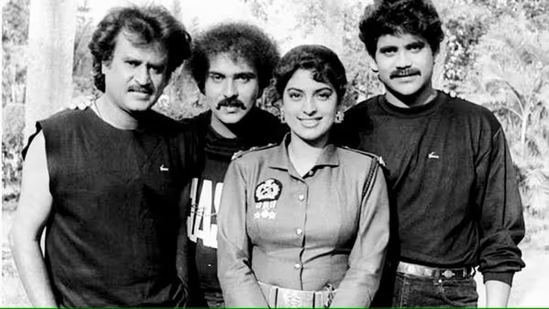
Shanti Kranti: How a Star-Studded Film Became a Box Office Flop
In India, the term “pan-India” describes films that everyone can enjoy, but this idea wasn’t new. Even before the term came up, many films aimed for a national audience. Some did really well at the box office, while others didn’t. One of those movies was Shanti Kranti, released in 1991. It was a big flop, costing the filmmaker everything he had.
The movie’s creator, V. Ravichandran, a well-known Kannada actor and director, had a big dream in 1988. He wanted to make a movie that all Indians could watch and enjoy, so he decided to make Shanti Kranti in four languages: Kannada, Telugu, Tamil, and Hindi. He wrote, directed, and produced the film himself. The Kannada version showcased his talent, while the Telugu version starred Nagarjuna. The famous actor Rajinikanth took the leading role in the Tamil and Hindi versions. Other popular names like Juhi Chawla and Khushbu also played important parts.
The film cost a whopping ₹10 crore to make, which made it the most expensive Indian film at that time! This broke the previous record held by a movie called Ajooba, which was made for ₹8 crore.
Shanti Kranti was first released in September 1991 in Kannada and Telugu. The Tamil and Hindi versions came out two weeks later. But to everyone’s surprise, the movie did not do well. It was a huge disaster at the box office, failing to attract enough crowds in any language. In total, it earned only ₹8 crore, which was not even enough to cover the costs. The expenses for advertising added more pressure, making it the biggest movie flop in India at that time.
The Impact on Ravichandran
Ravichandran invested all his savings into Shanti Kranti, even borrowing a big piece of land to shoot a crucial scene. He also spent a lot on special effects and huge sets. Sadly, he lost around ₹10 crore during the making and release of the film. It put him in a tough spot financially, and he ended up going bankrupt. To make ends meet, Ravichandran had to rely on remaking successful Tamil and Telugu films. These remakes helped him rebuild his career later in the 90s.
-

JLR Surpasses Audi: A New Era for Luxury Car Sales!
Jaguar Land Rover (JLR), owned by Tata, has made it to the top three luxury car brands in the market. They have moved ahead of Audi and sold over 50,000 luxury cars in the fiscal year 2025, even though this is just a 3% increase, the slowest growth in three years.
During the last part of the year, from January to March 2025, sales dropped because of issues with the stock market and worries about the economy. Despite that, the total sales reached 51,406 cars for the whole year, a slight increase compared to before.
JLR did really well this year, especially since there were very few Jaguar models available—all thanks to the Defender, Range Rover, and Range Rover Sport vehicles. They sold 6,183 Defender SUVs, which is an impressive 40% increase compared to last year’s sales of 4,417. Audi, on the other hand, sold 5,990 cars, which is a drop of 15% from last year’s 7,027 units.
Rajan Amba, the Managing Director of JLR India, mentioned that the Defender was their best-selling model, growing by 90% this year. The Range Rover and Range Rover Sport models also did well with growth rates of 72% and 42%, respectively. He’s hopeful that this positive trend continues into the next year.
In contrast, Audi is facing problems, partly due to limited car availability and issues surrounding the Red Sea crisis. Even though they started 2025 with some growth, they see challenges ahead until new cars are released.
Despite JLR’s strong performance, they are still behind Mercedes-Benz and BMW, which are the top two brands in luxury cars. Mercedes-Benz sold 18,928 vehicles this year, marking a 4% increase. BMW’s sales also went up by 5%, reaching 15,266 cars. Mercedes’ CEO stated that new car releases and network improvements have helped boost sales but warned that overall industry sales could be flat or decline in the next year.
Vikram Pawah, CEO of BMW India, talked about the steady demand for their cars, especially electric vehicles. He is confident that they will continue to grow in this area.